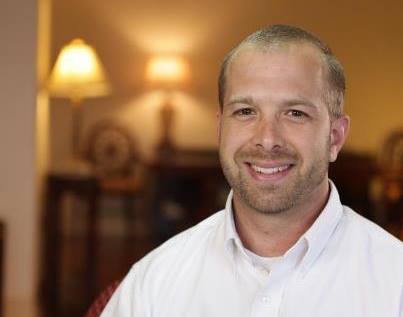Disaster Response through Faithful Partnership
This year has brought an overwhelming number of disasters – both natural and human-caused. As we gather with our families to give thanks this holiday, now is a good time to reflect on how we can proactively work to care for our neighbors, so that when they are at their most vulnerable they can rest on the strength of our connection, both to each other as people of faith and as a denomination.
Hear from Zachary Wolgemuth, the executive for our UCC Disaster Ministries, about how our response work happens, and the ways in which we are always prayerfully engaged in disaster response in the short and long-term.
When Disasters Strike: Running the Race Together
 How can I help NOW? Let’s Go! What’s the UCC doing? I often receive this type of reaction anytime disaster strikes. Admittedly, I sometimes get frustrated by what can sometimes feel like a knee-jerk response.
How can I help NOW? Let’s Go! What’s the UCC doing? I often receive this type of reaction anytime disaster strikes. Admittedly, I sometimes get frustrated by what can sometimes feel like a knee-jerk response.
Why would I get frustrated with such a response? Well, contrary to what is often portrayed as a completely chaotic situation with no coordination and the need is for all hands on deck, the reality is that when a disaster strikes there is actually structure, a process in place, and professionals who are working together and have worked together in countless disaster situations to meet the immediate needs and long-term needs of disaster survivors.
These organizations each have their niche and their area(s) of focus in which they provide relief. There is not one single organization, public, private, governmental, or non-profit, that is able to handle all the needs of disaster survivors from the early emergency phase through to recovery.
What does this mean? For most organizations it means focusing on one or two areas along the response and recovery continuum, becoming specialized, taking a professional approach and then collaborating with other organizations that specialize in other areas so that the transition from one organization’s operations to the next is as seamless as possible.
Think of it as a relay race where the baton, of service and support for survivors, is passed from one organization to the next. A race that lasts for months and, more often, years. In the wake of disasters, the baton is passed from shelter operations to medical support, temporary housing, feeding, child care, debris cleanup, temporary repairs, case management, long-term recovery group (LTRG) development, emotional/spiritual care, and home reconstruction – just to mention a few.
This is the most efficient and effective way of responding and, believe it or not, this community of organizations actually practices working together during the times when we are not responding. One of the platforms for honing our collective response is through the VOAD network (National Voluntary Organizations Active in Disaster). In fact, the members of National VOAD commit to the core values of cooperation, communication, coordination and collaboration. These members also develop standards, share best practices, and adhere to a certain code of conduct.
So where does UCC Disaster Ministries fit?
UCC Disaster Ministries is an active member of VOAD. This is my 6th year on the Board of Directors and I currently serve as the chair. Additionally, we have several UCC Conference Disaster Coordinators serving on various VOAD committees.
One of UCC Disaster Ministries goals is to support our network of conferences, associations, and congregations in being prepared for disaster. We do this by sharing preparedness materials, offering support, and raising educational awareness. In the immediate aftermath of a disaster, we share updates and information with our partners, donors, and supporters, and encourage financial giving for long-term recovery.
We work hard to fill gaps in services during the early phases of disasters (days – months), providing grants to partners, churches, and conferences, along with technical expertise and networking opportunities, but our a primary focus is on long-term recovery (months – years). We focus the majority of our efforts on this work because it is arguably the most costly phase of the disaster and at the same time the most under-resourced.
In long-term recovery, UCC Disaster Ministries provides grants and seed funding for local LTRG development, trains and deploys volunteers to support community recovery, and provides disaster volunteer opportunities for mission groups. We focus our response in these areas, because we believe it is more important to fill gaps, take a holistic approach to recovery, and walk with the most vulnerable survivors as they embark on the long journey of healing and restoration.
We are needed when the cameras have left, the future seems hopeless, and the reality of recovery remains.
Related News
United in Solidarity with Unions and Workers
“In the workplace, two factors greatly influence wages, benefits, and working conditions:...
Read MoreState of the (Dis)Union: Our Constitutional Crisis
In the 45 days since Inauguration Day, we have witnessed overwhelming changes in our federal...
Read MorePlanning for Earth Month: Resources for Congregations
April is Earth Month, and for congregations, it can be a great time to further discern how...
Read More


